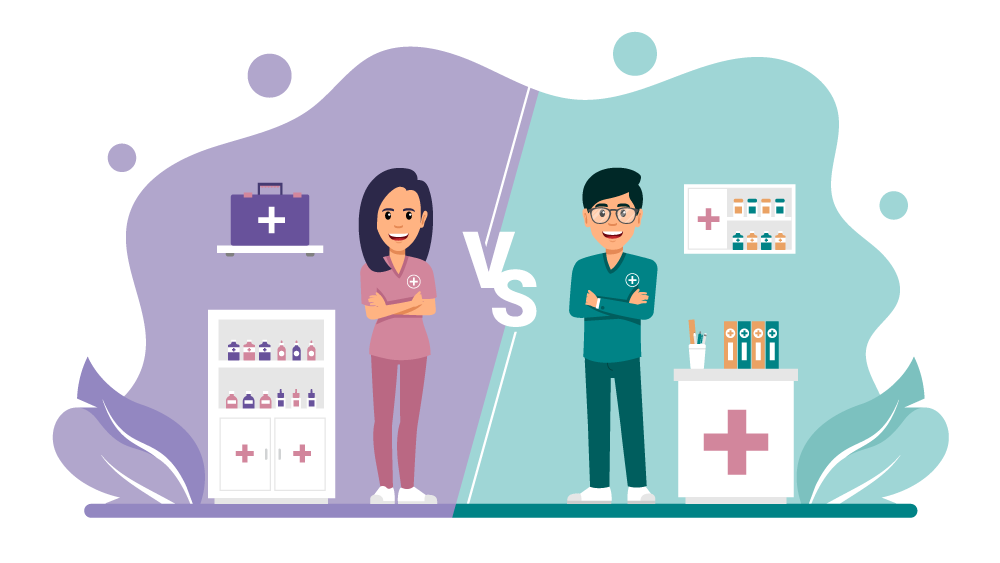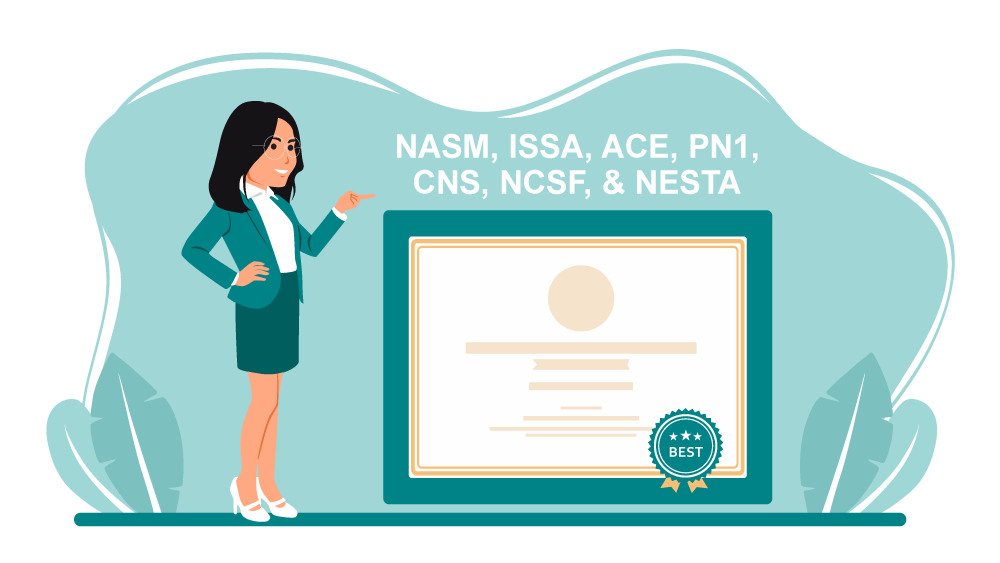If you want to help people keep their skin healthy, learning how to become a dermatologist is a great option. This career offers plenty of benefits, a high salary, and lots more. Those considering a medical career might want to consider dermatology.
Understanding the job duties of a dermatologist is a good place to start. If you’re trying to determine the right career for you, knowing what you will do regularly is a good way to figure out if this is the right choice. Let’s look at the job duties and the steps to become a dermatologist.

Job Duties of a Dermatologist
As a dermatologist, you will specialize in skin care and skin issues. These issues may range from acne to cancer. You will also treat nail and hair disorders. Dermatologists will have many job duties including:
- Meeting with patients to diagnose and assess their skin, nails, or hair issues
- Recording and reviewing the medical history of patients
- Coming up with a treatment plan for your patients
- Removing abnormalities, such as warts and moles
- Taking biopsies for additional diagnosis and research
- Handling cosmetic issues, such as birthmarks and aging marks
- Using lasers to treat birthmarks and address wrinkles
- Using skin grafting to help with scarring
- Performing examinations and treatments as follow-ups with patients
In some cases, dermatologists will also help to remove unwanted tattoos. Your job duties may vary, depending on your specialty, as well.
How to Become a Dermatologist in 9 Steps
Step #1 – Do Well in High School
You will need a college education to become a dermatologist. The path for this career starts by doing well in high school. A high GPA, good SAT or ACT scores, and competing AP or honors courses can help you get into a better college or university.
It’s important to do very well in high school. The better degree program you can get into, the better your application for medical school will look. Test prep courses for the SAT, ACT, and AP courses can be very helpful.
Step #2 – Get a Bachelor’s Degree
You will need a bachelor’s degree to become a dermatologist. It’s common to major in biology, physics, chemistry, or a related field. This can help prepare you for medical school.
As you gain your education, you will take many science courses. These courses will help to build a foundation for medical school and your career.
Step #3 – Pass the MCAT
Before you complete your bachelor’s degree, you will take the very long, 7.5-hour Medical College Admission Test. This is one of the most important exams you will ever take if you want to become a dermatologist. You will need to pass this test and score high if you want to get into medical school.
The MCAT will test your knowledge of biology, psychology, chemistry, and critical analysis. A high score helps make you a better candidate for medical school. It can also ensure you get into a better medical school.
Choosing the right MCAT prep course will help ensure you score high on this important exam.
Step #4 – Complete Medical School
Dermatologists are doctors. you will need to complete medical school and earn an M.D. to become a dermatologist.
During medical school, the first two years will be all about classroom study and lab sessions. This will help you learn all the necessary basics for practicing medicine.
When you enter your third and fourth year, you will work on clinical rotations with experienced doctors. All four years are very important and will require you to work hard.
Step #5 – Pass the First and Second Part of the USMLE
The USMLE is another very important exam you will need to pass. It consists of three parts. You will take the first part of the USMLE after your second year of medical school. The second part needs to be passed after your third year of study.
Step #6 – Finish Your Residency
After you complete medical school, you will need to complete a four-year residency in dermatology. This is a very competitive field, so you will need to score very high on the first two parts of the USMLE if you want to become a dermatologist.
Step #7 – Pass the Third Part of the USMLE
After completing your residency, you will need to pass the third part of the USMLE. This final section is necessary to earn your license, which you will need to practice dermatology.
Step #8 – Get Your License
Once you have completed your education and residency, along with passing the necessary tests, you can apply for your state license. The license requirements and fees will vary from one state to another.
Step #9 – Become Board Certified
You don’t have to become board certified, but it’s certainly a good idea. You can become certified through the American Board of Dermatology by meeting the following requirements:
- Hold an M.D.
- Earn your dermatology license
- Pass the ABOD exam
- Complete a fellowship in procedural dermatology, pediatric dermatology, or dermatopathology
You will need to renew your board certification every 10 years.
Frequently Asked Questions About Becoming a Dermatologist
How much can I make as a Dermatologist?
According to Indeed.com, you can earn an average salary of about $280K per year. This salary can be higher or lower, depending on your experience, your specialty, and your location.
Some employers pay much higher wages with top employers paying more than $300K or even more than $400K for experienced dermatologists. If you work in the New York City area, Houston, or Phoenix, you will likely earn a higher salary than other locations.
What type of benefits do dermatologists earn?
It’s very common for a dermatologist to gain a benefits package from their employer. This package will likely include malpractice insurance, health insurance, a 401(k), and paid time off. Some employers will also provide relocation assistance, licensed reimbursement, and loan forgiveness or assistance. It’s also common to get dental insurance and disability insurance when you work as a dermatologist.
How long will it take me to become a dermatologist?
The education and other requirements to become a dermatologist will likely take about 12 years to complete. It starts with a four-year bachelor’s degree program. You will also need four years of medical school and another four years of residency.
Some dermatologists that decide to specialize, will also need to complete a fellowship. This can take longer than the 12 years it will take to become licensed as a dermatologist.
Where will I work as a dermatologist?
Dermatologists often work in physicians’ offices or clinics. They might start their own private practice or work for a healthcare group. Some will even work in hospitals.
What type of hours will I work as a dermatologist?
When you become a dermatologist, you will likely work typical 9-to-5 hours. You won’t be on-call very often for emergencies, but you could end up with some on-call shifts. Some dermatologists will also work weekends or evenings to help accommodate the schedule of a patient.
What type of courses will I take in medical school to become a dermatologist?
you will complete many science courses throughout your education if you want to become a dermatologist. The coursework you will need to study will include subjects, such as:
- Statistics
- Surgery
- Ethics
- Practical Care
- Pharmacology
- Skin Conditions
You will complete courses in medical dermatology, clinical sciences and pharmacology, and procedural dermatology.
What type of skills do I need as a dermatologist?
To become a dermatologist, you will need quite a bit of education. However, you will need other skills, such as:
- Professionalism
- Manual dexterity
- Communication skills
- Analytical skills
- Commitment
- Critical thinking skills
- Interpersonal skills
- Detail-oriented
- Compassion
These skills will help you become successful in this career.
Is the career of dermatologists growing?
Dermatology is a growing area in the medical field. It’s growing just slightly more than the average of all occupations. This career is expected to grow about 7% for the next ten years.
What kind of equipment and tools will you work with as a dermatologist?
As a dermatologist, you will work with many types of equipment and tools. Some of the types of tools you will use include:
- Scalpel
- Lancet extractor
- Biopsy or dermal punch
- Cryogen for freezing warts and moles
- Comedone or a blackhead extractor
- Dermabrasion equipment used to remove tattoos and scars
These types of tools and equipment can help you treat skin conditions better. You may work with some of this equipment every day.
There are many excellent medical careers to choose from. If you want to help people treat skin disorders and diseases, you want to learn how to become a dermatologist. This type of medical career can be very rewarding.
If you work as a dermatologist, you will work with patients on a daily basis. It can be very rewarding to help those with skin abnormalities feel better and look better. From serious to cosmetic skin issues, as a dermatologist, you will treat all types of skin issues.




